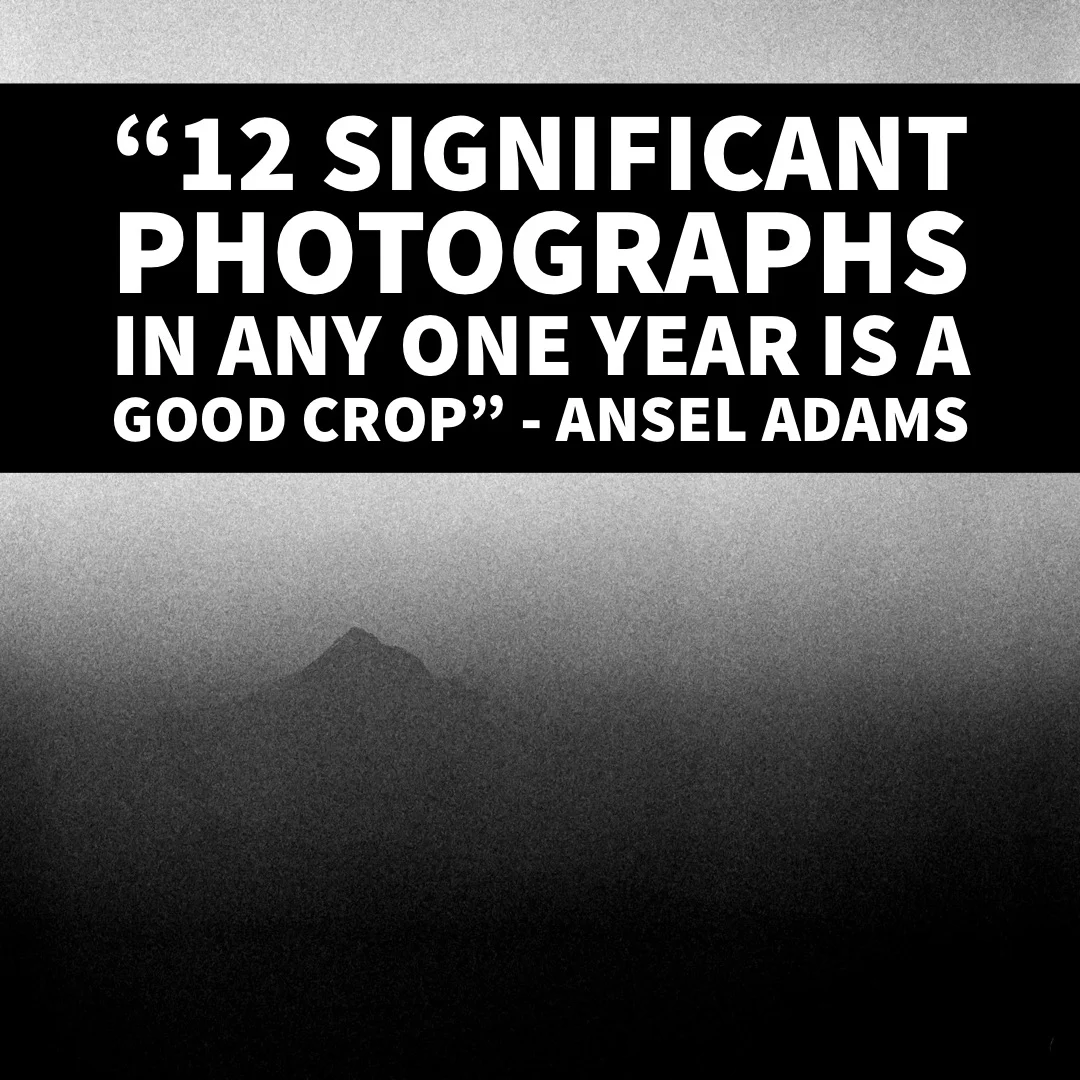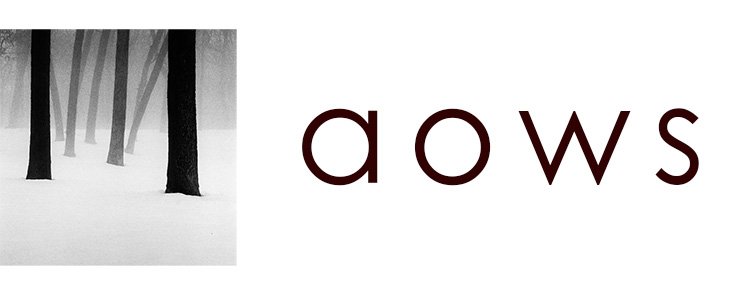The story behind a piece of art can be as important, if not more, than the piece itself. How we make art matters, a lot.
art
Photography is not a competition
Photography (and art, in general) is not a zero-sum game. The goal should never be to try to “steal” a slice of the pie from other photographers, but to help each other to make the pie bigger. The more people know about photography, the more joy they can find in art, the better for every creator out there.
That’s why we owe so much to the photographers that came before us, and to the photographers that are bringing more and more attention to this world nowadays.
Want to stand tall? Don’t wish everyone else were shorter, just take yourself to higher ground.
Why photography can't be mastered
To master something is to:
- gain control of; overcome
Photography is rarely under your control, unless you are shooting in a studio. Ask any landscape photographer, street photographer or journalist. No, you are always at the mercy of the elements.
- acquire complete knowledge or skill in (a subject, technique, or art)
While there's some knowledge and skills involved in photography, knowing how to use a camera or how to print doesn't make you a good photographer.
In fact, technology has made photography much more accesible, exposing what has always been the most important part of this art: seeing.
No, I don't think photography can be mastered.
You can master your camera, or the printing process. But not the art. That is inside you, it's the way you see the world. You can't master yourself.
Take a look at the early work of the "masters" of photography. Yes, their images evolved over time, but their vision was always there. You won't find a point where they "became" a master.
I believe photography is a lifelong journey, there's no finish line. There's no "I've made it" in sight. No 10,000 hours.
No mastering. Just practice.
Lebenskünstler, the "life-artist"
I absolutely loved the meaning of this German word.
While it refers to a way of approaching life in general, it's also something I try to apply to my photography: embracing whatever place and situation I might be in as an opportunity to create an image.
Let's all be a bit more lebenskünstler.
It's within you
I love hearing from people who were inspired by my work or my words. It gives meaning to what I do.
A few years ago, I went through a period of struggle with my photography. It got boring and predictable, and I didn't like what I was making. It all felt the same, my work didn't feel mine, personal, unique, with my own style.
The Bronica changed all of that. It was a very different approach to photography: slower, more intentional and engaging.
And apparently, it's done the same for many people. This camera is a recurring theme in those messages, filled with stories of how it's changed the way they approach photography.
I'm very glad to hear those stories. While I don't usually like to talk about gear -it's just a tool after all-, some cameras can really spark joy and open a whole new way of seeing. The Bronica is definitely one of those cameras.
Some time has passed since the Bronica came to my life and changed my photography forever. I don't use it as often nowadays, but its effect is still profound. This is because it didn't really changed anything, it simply revealed what was already within me. The Bronica was the catalyst that brought the change, not the reason of it.
It's within you, too. Never think that your photography is tied to any camera or lens, or whatever piece of gear. You are an artist because of what you have in you, not because of the tools you use.
The blessing of the beginner
If you are just starting out your artistic journey, you are blessed with freedom. You can choose to do whatever you want. You get to build your skills, your style, and your portfolio along with your audience.
A body of work needs some consistency over time, for both the artist and the audience's sake. A singer builds an audience because they stay loyal to a genre and style.
All artists should evolve. But when you've established an audience, change is hard. When a band releases a new album that doesn't sound like them, fans complain. It doesn't matter if it's good or not, what matters is that it wasn't what they were expecting.
Take advantage of your current freedom, don't be afraid of experimenting and sharing the results. Eventually, you'll settle on a style that clicks with you and an audience.
Allow yourself to take bad photos
Inspiration comes from action, so start taking photos. Allow yourself to make bad photographs, do it for the sake of it, with no purpose in mind. Art is more about play and less about thinking.
Traveling as a way to discover yourself and your art
For the last 2+ years, we've been living nomadically across several countries. Before that, I'd moved from Spain to the US where I lived for 5+ years. All these travels have changed me and my art in very profound ways -and it could change you, as well. Let's see how.
Read MoreIs printing your images still necessary?
I don’t remember who said it, or the exact quote, but it went something like this: an image isn’t an image until it becomes a print, or that the print is the final step for an image.
This used to be the case a few decades ago, when the only way to create and see an image was in the darkroom in the form of a print.
But is it still true today? With all the ways that today’s technology offers to share our art?
I don’t believe this is longer the case. I don’t think the print is the (only) final step of an image today.
Don’t get me wrong, printing your images is awesome and something that every photographer should do (I myself print some of them) -but we don’t have to print an image for it to be considered art.
Most of my images aren’t going to be printed, ever. They’ll live as digital art here on my website, on Instagram or on YouTube. I don’t think less of them: they are still my work, my art, and they fulfill their purpose as such.
I feel very lucky to live in this day and age when I can use film cameras from decades ago and print my images in the darkroom, and use a completely digital workflow from beginning to end.
How to know if we are progressing as photographers
How do we measure progression in a creativity work like photography? I'll be clear from the beginning: there's no progression in photography.
Read MoreThe world needs you
I've been told many times -especially when working with film- about the right way to do things.
"Look at the masters", they say. "Do what they did", they repeat.
"It was all academic. You were taught to paint like somebody else, made me not want to paint at all. You want to paint your own way!"
Georgia O'Keeffe said it better than anyone else. Using just charcoal, she created beautiful -but radical for her time- abstract drawings. That wasn't what she was supposed to be doing. And yet, she became one of the greatest American artists of the 20th century.
Look at the masters, and then "kill" them and carve your own path. The world doesn't need another Ansel Adams or another Henri Cartier-Bresson.
The world needs you.
Forever a beginner
Experience doesn't matter when it comes to photography. If it did, all the greats would've created their best images at the end of their careers. That's rarely the case.
Actually, I'd argue that experience makes us and our art predictable. The more we do something, the less likely we are to try something new.
I believe we should strive to be beginners forever.
You don't have to explain your art
We create because we love creating.
Sometimes, there's no need for an explanation or a deeper meaning. No need for a grandiose project or a long-term vision.
It can be all about the act of creating something new.
Art made by and for humans
In this day and age where AI is starting to take over photography (see: portraits of people that don't exist made by AI, one is tempted to think that photography is doomed.
I believe this might open new opportunities for (human) artists, actually.
Read MoreHolga Pinhole Lens for Sony E-Mount cameras (Sony a6000)
I believe that in imperfection lays the beautiful.
That's why I shot a Holga for quite a while, why I love to shoot film or use cheap lenses on my digital cameras.
Something I've wanted to try for a while was pinhole photography. I didn't want to do it on film because it could get expensive, so I built my own pinhole lens. That worked just fine but I didn't really like the idea of having the sensor exposed through a physical hole. I went ahead and bought a Holga Pinhole Lens on eBay for 20-25 euros.
This is the lens I'm trying in this video, where everything is about embracing imperfection.
12 significant photographs a year

This quote by Ansel Adams is used quite often, perhaps to motivate photographers who feel they aren't making enough good images. A few images this year, a few more next year, and so on can become a significant body of work over time.
I have 2 problems with this approach, though.
Read More


